Raman Singh, Monash University, Australia
Graphene has triggered unprecedented research excitement for its exceptional characteristics. The most relevant properties of graphene as corrosion resistance barrier are its remarkable chemical inertness, impermeability and toughness, i.e., the requirements of an ideal surface b [....] » Read More




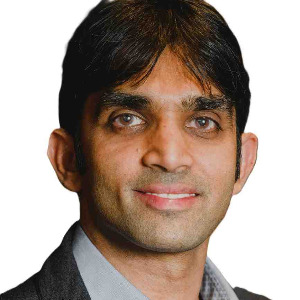
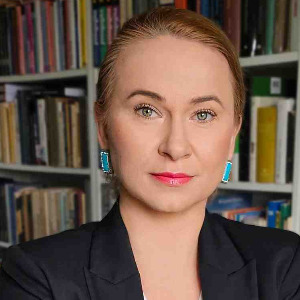
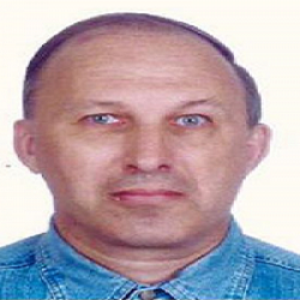
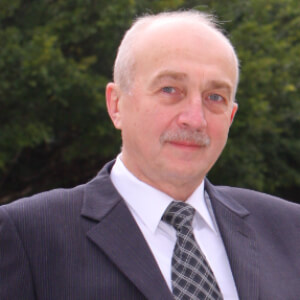

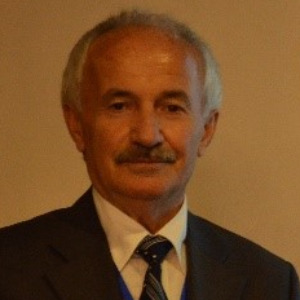
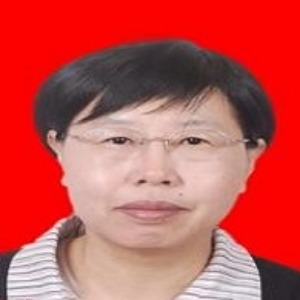

![Electrical and infrared spectroscopy analysis of BiBaFeO3 doped nanocomposite gel polymer electrolytes [PVA:NH4CH3COO] system Lovely Ranjta, Speaker at World Nanotechnology Conference](https://worldnanotechnologyconference.com/uploads/speakers/lovely-ranjta-9707.jpg)







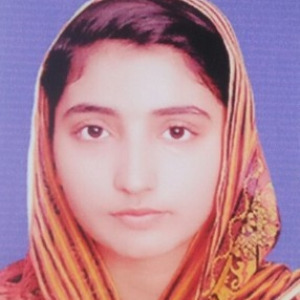



Title : Nanomaterial-based bio-lubricant additives for improved efficiency and environmental sustainability in automotive applications
S V A R Sastry, Harcourt Butler Technical University, India
Two-dimensional (2D) nanomaterials synthesised by hydrothermal means have become a key technology in nanotechnology, especially for applications requiring accuracy in particle shape, crystallinity, and surface properties. This process creates well-defined nanostructures by means [....] » Read More
Title : 40,000 implants in humans and no failure: The impact of nanomedicine
Thomas J Webster, Hebei University of Technology, China
Nanomedicine is the use of nanomaterials to improve disease prevention, detection, and treatment which has resulted in hundreds of FDA approved medical products. While nanomedicine has been around for several decades, new technological advances are pushing its boundaries. For exa [....] » Read More
Title : Lipid nanoparticles formulations: From bench scale to industrial scale
Mohammad A Obeid, RAK Medical and Health Sciences University, United Arab Emirates
Lipid nanoparticles are self-assembling vesicles obtained by hydrating a mixture of non-lipids and cholesterol and are suitable as carriers of drugs and biopharmaceuticals. It is desirable to be able to accurately control size and polydispersity of the vesicles as this can impact [....] » Read More
Title : Hybrid activated carbon/rGO/nanoTiO2 electrodes with enhanced structural stability: Toward advanced electrochemical applications
Carlos Gamarra Guere, Universidad Nacional de Ingeniería, Peru
The design of hybrid electrodes integrating carbon-based materials and metal oxides remains a critical challenge for next-generation electrochemical technologies [1]. Here, we report the synthesis and structural characterization of hybrid electrodes composed of activated carbon ( [....] » Read More
Title : Controllable assembly and disassembly of microparticles under light-induced electric fields
Ao Wang, Beihang University, China
Microscale and nanoscale particle assembly plays a critical role in material science, microfluidics, and biomedicine. However, many existing techniques suffer from limited dynamic controllability, low spatial resolution, and poor adaptability to diverse environments. In this stud [....] » Read More
Title : Magnetic cellular robots: Precision cytokine delivery for tumor therapy
Hongyan Sun, Beihang University, China
Cancer stands as a major global health concern, ranking second in mortality rates worldwide. Among them, lymphoma is a highly diverse and aggressive immunologically “cold tumor” that exhibits inadequate T cell infiltration and poor response rates. In recent years, imm [....] » Read More
Title : Nano DAP augments productivity, phosphorus use efficiency, and profitability of spring wheat in India
Binaya Kumar Parida, Coromandel International Ltd, India
Agriculture is evolving with innovations like nano fertilizers, which promise to boost productivity and sustainability. This study assessed the effectiveness of nano DAP in enhancing growth, yield attributes, nutrient uptake, and economic viability in wheat cultivation (Triticum [....] » Read More
Title : Biosurfactant conjugated and functionalized silver nanoparticles with enhanced antimicrobial and antibiofilm efficacy: A mechanistic approach
Rajib Majumder, Adamas University & CSIR-IICB, India
Background Green synthesis has gained significant attention as a sustainable and environmentally friendly approach for the fabrication of metal oxide nanoparticles. However, a major limitation of plant-mediated synthesis of silver nanoparticles (AgNPs) is the requirement for add [....] » Read More
Title : Biosynthesis and characterization of silver nanoparticles from the Annona muricata leaves
Korrapati Narasimhulu, National Institute of Technology Warangal, India
Silver nanoparticles (AmL-AgNPs) were successfully synthesized using a green and eco-friendly approach by employing the leaf extract of Annona muricata. The formation and purity of these biogenic nanoparticles were initially confirmed through UV-vis spectroscopy and Energy D [....] » Read More
Title : Biosynthesis and characterization of garcinia Mangostana-derived silver nanoparticles as a novel nanobiopesticide against Sspodoptera Litura
Ashu Chaudhary, University of Delhi, India
This study presents the green synthesis of silver nanoparticles using the pericarp extract of Garcinia mangostana (Clusiaceae) (Gm-AgNPs), a plant rich in bioactive phytochemicals, as a sustainable approach to combat the polyphagous pest Spodoptera litura. The aqueous ext [....] » Read More
Title : MAC layer protocols for in-vivo wireless nanosensor networks using terahertz signals: A survey
Alemtsehay Gebreanania Gebru, SRM University AP, India
Terahertz-based in-vivo Wireless NanoSensor Networks (i-WNSNs) represent a groundbreaking communication paradigm for non-invasive medical diagnostics and therapeutics. These networks rely on wireless links to enable cooperation among nanosensor nodes, connecting multiple nanodevi [....] » Read More
Title : Green synthesis of zero-valent iron nanoparticles for arsenic removal from groundwater: Mechanistic and kinetic insights
Gourav Mondal, Indian Statistical Institute, India
The present study presents the synthesis and characterisation of nanoscale zero-valent iron particles that have been obtained from two different leaf extracts of guava and mango in order to remove arsenic (As) contamination from groundwater. Results indicate that green nanopartic [....] » Read More
Title : Effects of Au@Ag core-shell nanostructure with alginate coating on male reproductive system in mice
Mehdi Mehdizadeh, Iran University of Medical Sciences, Iran (Islamic Republic of)
Despite the widespread use of silver nanoparticles (NPs), these NPs can accumulate and have toxic effects on various organs. However, the effects of silver nanostructures (Ag-NS) with alginate coating on the male reproductive system have not been studied. Therefore, this study ai [....] » Read More
Title : Iron oxide nanoparticles: Green synthesis, characterization, and study of its antimicrobial, antioxidant activity
Surendra K Gautam, Tribhuvan University, Nepal
Magnesium oxide nanoparticles (MgO NPs) are less toxic to humans and the environment as compared to other metal oxide nanoparticles. Various conventional chemical and physical methods are used for synthesis whose toxicity level is high and highly expensive. As a best alternative [....] » Read More
Title : Targeting Alzheimer’s proteins: Binding and pharmacokinetics of Mimosa pudica leaf extracts
Chinwe S Alisi, Federal University of Technology Owerri, Nigeria
This study revealed the bioactive volatile components of Mimosa pudica leaf hydro-ethanol extract using gas chromatography-mass spectrometry (GC-MS) and investigated the computational binding characteristics with β-Site APP-cleaving enzyme (BACE 1). Pharmacokinetic propertie [....] » Read More
Title : Mechanistic insight and in-vitro validation of phytochemical-functionalized ZnO nanoparticles as antioxidant and antimicrobial therapeutics against antimicrobial-resistant E. coli
Callistus Izunna Iheme, Federal University of Technology Owerri, Nigeria
Antimicrobial resistance (AMR) poses a significant threat to the global health sector. Zinc oxide nanoparticles (ZnO NPs) were synthesized with aqueous crude extract of Azadirachta indica, and the phytochemical compositions determined using Gas chromatography coupled to mass spec [....] » Read More
Title : Self organized bismuth oxide nanofibre layer as an efficient photocatalyst
Ibrahim Yakubu Ogirima, Confluence University of Science and Technology Osara, Nigeria
Metal oxide-based electro catalysts are promising alternatives to other conventional materials used for waste water splitting due to their low cost, abundant raw materials, and impressive stability. In the present work we demonstrated that BixOx-1 nanofiber layers and some electr [....] » Read More
Title : Additive manufacturing of molecular-level-engineered SiCN ceramic modified with carbon nanomaterials /transition metal carbides towards next-generation electromagnetic metamaterials
Xingmin, University of Padova, Italy
Ceramic-based high-temperature electromagnetic absorption materials (EMAMs) is playing an increasingly important role in combating the EM pollution. However, ceramic-based EMAMs always suffer from unsatisfactory EM performance limited by the material characteristic as well as the [....] » Read More
Title : Noval transdermal nanoemulgel of oxaprozin with apricot kernel oil: A promising approach for osteoarthritis management
Ahsan Ali, Jamia Hamdard University, India
Osteoarthritis (OA) is one of the most common forms of degenerative joint disease and a major cause of pain and disability affecting the aging population. It is estimated that more than 20 million Americans and 35 to 40 million Europeans suffer from OA. Analgesics and non-steroid [....] » Read More
Title : Stabilizing levitation of a graphene flake in a magnetic field through the Casimir effect
Norio Inui, University of Hyogo, Japan
To probe the fundamental quantum mechanical aspects of mesoscopic objects, the phenomenon of quantum decoherence must be effectively mitigated. A primary pathway for decoherence involves the object's physical contact with its environment; consequently, non-contact levitation [....] » Read More
Title : Optimization of functional groups in CAU-10(Al) for enhanced acetylene (C₂H₂) storage and effective C₂H₂/CO₂ separation
Salimov Maftun Gayrat Ugli, KRICT, Korea, Democratic People's Republic of
The adsorptive separation of acetylene (C2H2) from C2H2/CO2 mixtures has emerged as a promising alternative to cryogenic distillation, enabling the production of high-purity C2H2 via safer and more energy-efficient processes. Aluminum-based metal-organic frameworks (MOFs), includ [....] » Read More